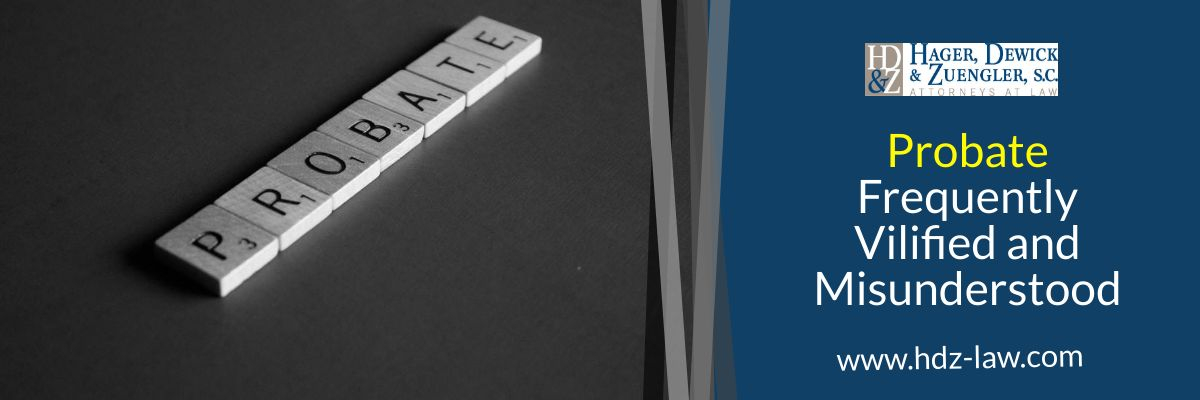
Few, if any, court proceedings are as vilified as probate, typically because it’s perceived as being time consuming and expensive. Despite this widely held opinion, many don’t have a good understanding of what the probate process actually entails. At its most basic, probate is the court-supervised administration of a decedent’s assets after his or her death. Despite being “court supervised,” however, most probate matters are actually handled by the county register in probate, rather than a judge, and unless disputes arise during the process, required court appearances are rare. Although certain filing fees are required, the main fee is equal to a small percentage of the value of the assets subject to probate.
The basic steps of a probate include having the decedent’s Last Will and Testament admitted, collecting the decedent’s assets, paying all valid bills and expenses, preparing any necessary tax returns, and distributing the net proceeds of the estate to the beneficiaries. As part of this process, the personal representative, referred to in some jurisdictions as an executor, is required to prepare an inventory of the assets that subject to probate, which must list the fair market value of the assets as of the decedent’s date of death, as well as an accounting of his or her administration of the estate. This information is provided to both the register in probate, where it becomes public record, and the beneficiaries of the estate.
Contrary to popular belief, being named as personal representative in a decedent’s Last Will and Testament does not automatically give a person the authority to begin administering the decedent’s estate. Rather, the Last Will and Testament, if one exists, must first be admitted to probate before the register in probate will issue Domiciliary Letters to the personal representative, thereby providing his or her authority to act on behalf of the estate.
Another common misconception is that preparing a Last Will and Testament circumvents the probate process. The primary purposes of a Last Will and Testament are to outline how a person’s assets are to be distributed upon their death, designate a personal representative and trustee of any trusts created under the Last Will and Testament, and nominate a guardian for any minor or incapacitated children. Without a Last Will and Testament, the default laws of the State of Wisconsin, also referred to as “intestacy,” will set those terms. In sum, a Last Will and Testament specifies the terms of the probate administration but does not itself avoid probate of the decedent’s assets.
It’s also important to understand the scope of probate, which applies only to assets that are titled in the decedent’s individual name at the time of his or her death. It does not apply to: (1) jointly titled assets, which typically become the sole property of the other owner upon death; (2) assets that are subject to a payable on death or transfer on death designation, most commonly seen in the case of real estate, checking and savings accounts, and non-qualified investment accounts; and (3) assets subject to a beneficiary designation, as are most retirement accounts and life insurance policies. Because these assets are not subject to probate, they are also not subject to the decedent’s Last Will and Testament.
Finally, there are various summary procedures that may be utilized where the net value of the decedent’s assets that would be subject to probate is less than $50,000. These include the Transfer by Affidavit, which allows an heir of the decedent, as well as and certain other interested individuals, to take possession of the decedent’s assets for purposes of satisfying any outstanding debts and distributing the remaining assets to the decedent’s heirs or beneficiaries, depending on whether the decedent left a Last Will and Testament. In the event the debts of the estate exceed its assets, additional summary procedures exist for purposes of assigning the decedent’s assets between creditors of the estate and the decedent’s surviving spouse and minor children, if applicable.
In sum, probate is an important and often unavoidable procedure, the burden of which can be dramatically lessened by advance planning and the assistance of an experienced probate attorney.
For further questions, please contact Emily Ames at 920-430-1900.
